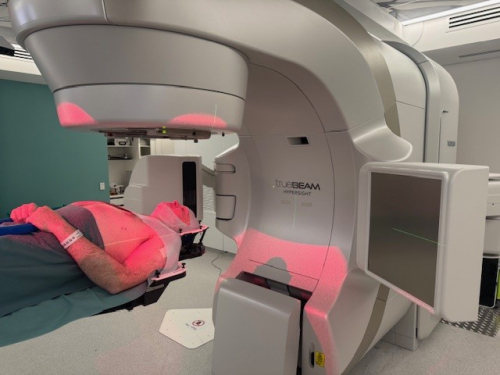The Alfred leads Aussie-first drink study
A simple Australian-first experiment at The Alfred, designed to encourage people to choose healthier drinks, has revealed important insight into consumer behaviour.
By removing full-sugar soft drink, and other sugar-sweetened drinks, from retail display at the hospital’sAlf’s Café, the population health team have shown that a food retailer can maintain steady sales while encouraging healthier choices by customers.
Using a traffic light system, adopted by The Alfred’s Healthy Choices program, packaged drinks were split into three categories, with ‘green’ drinks being the healthiest choice, and ‘red’ best avoided.
‘Green’ drinks include water, carbonated water, flavoured mineral waters with no added sugar, and reduced fat milk drinks under 300ml.
The ‘amber’ category included artificially sweetened and ‘diet’ drinks, as well as fruit juices with at least 97 per cent fruit (up to 300ml).
The ‘red’ category of drinks included sugar-sweetened drinks, as well as juices, flavoured mineral waters and all milk-based drinks over 300ml.
Alfred Health’s lead for population health, Kirstan Corben said the experiment offers early proof that the way packaged drinks are displayed can directly influence consumer choice.
“There is very clear evidence to show that high consumption of sugar-sweetened drinks is associated with obesity and other health issues,” Kirstan said.
“By simply taking sugary drinks and placing them out-of-sight, beneath the counter, we saw a decrease in red-drink sales, and more people continuing to choose ‘green’ or ‘amber’ drinks over a six-month period (September 2014 to February 2015).”
While Kirstan said that the project paves the way for a more detailed study, she said the results are a win for consumers and retailers wanting to make a difference.
Chief Executive, Associate Professor Andrew Way, said Alf’s Cafe took part in the study in the hope that it might promote a healthier hospital culture.
“It is exciting that Alfred Health can lead by example and encourage healthy choices by staff, visitors and patients, while ensuring the sustainability of on-site retailers,” Andrew said.
The study, A Green Light for Healthy Consumption, is receiving strong interest from other organisations keen to promote the health of their consumers, and from the food industry.


